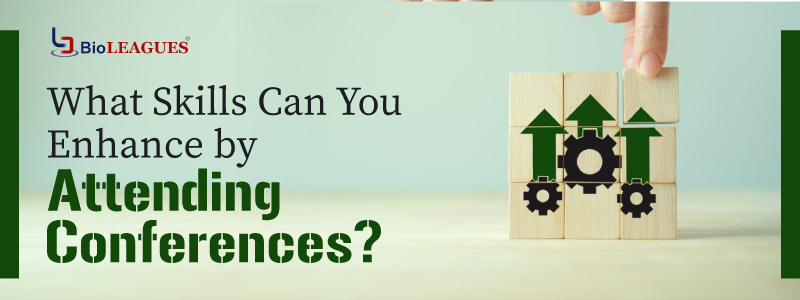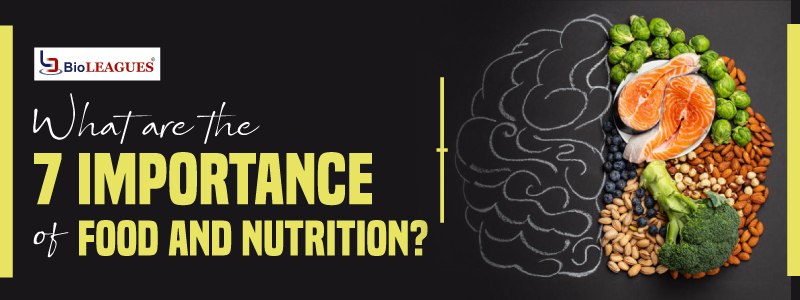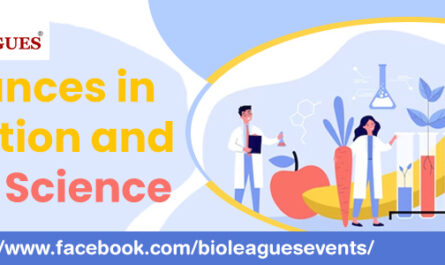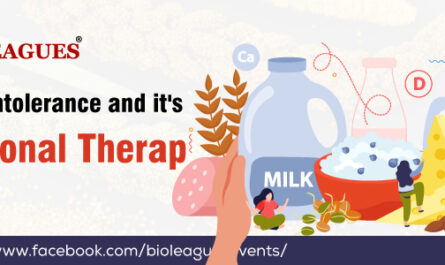In the dynamic and ever-evolving landscape of food and nutrition science, the quest for knowledge, skills, and meaningful connections never truly ends. Whether you’re a seasoned researcher, a young professional, or an avid enthusiast, there’s always something new to discover, someone inspiring to meet, or a fresh perspective to consider. But where can you find a setting that encapsulates all these opportunities for growth and enrichment? The answer lies in the stimulating corridors, bustling exhibition halls, and intimate breakout rooms of food and nutrition conferences.
This article journeys through the manifold benefits of attending food and nutrition conferences, dissecting their value into three core dimensions. First, we will explore the crucial aspect of staying updated on the latest research and trends, diving into how conferences serve as a nexus for cutting-edge information. Next, we will navigate the corridors of professional development and career advancement, examining how conferences can be a catalyst for skill enhancement, networking, and even job opportunities. Finally, we’ll venture into the often-underestimated personal and social benefits that these gatherings offer—from the joy of meeting people who share your passions to the subtle, yet profound, impact on your well-being and happiness.
What’s The Importance Of Staying Updated On The Latest Research & Trends In Food & Nutrition?
Why Is Staying Updated In Food & Nutrition Critical?
- In a field as dynamic as food and nutrition, being up-to-date is not just a professional requirement but a necessity for impactful work.
- The consequences of outdated information can be drastic, affecting public health policies, clinical recommendations, and even individual health outcomes.
- For example, outdated guidelines on fat consumption have, in the past, led to misguided public health messages.
- Moreover, new discoveries often open up entirely new avenues for research and product development, offering competitive advantages to those who stay informed.
What Topics Are Leading The Conversation In 2025?
The following trending topics that are likely to be covered in any upcoming international conference on food and nutrition include –
- Plant-Based Nutrition: Understanding the health benefits and challenges of a plant-based diet.
- Gut Health: The role of gut microbiota in overall well-being and disease prevention.
- Personalized Nutrition: How genetic makeup can influence nutritional needs and dietary recommendations.
- Food Security: Strategies to ensure that populations have access to nutritious food.
- Sustainability: The impact of food production methods on the environment and long-term food security.
How Can Conferences Provide Access to Cutting-Edge Information?
- Conferences serve as a live hub for the dissemination of the latest research findings, often even before they’re published in journals.
- They offer participants the opportunity to hear firsthand from experts who are leading groundbreaking studies.
- Additionally, the peer-review process for conference presentations is typically rigorous, ensuring that the information presented is credible and significant.
Who Are The Experts & Peers You Can Connect With?
- Conferences attract a diverse audience, including researchers, clinicians, policy-makers, and industry leaders.
- This creates a unique networking environment where you can meet people who may have different but complementary expertise.
- Such connections can lead to collaborative research projects, career opportunities, or simply provide you with new perspectives on your work.
Where Can You Access Additional Resources?
- · Beyond presentations and keynote speeches, conferences often include workshops, seminars, and exhibitions.
- · These additional platforms provide hands-on experience and access to resources like advanced lab equipment, software, or specialized publications that you might not easily find elsewhere.
What Are The Opportunities For Professional Development & Career Advancement?
What Skills Can You Enhance by Attending Conferences?

Presentation & Communication Skills
- Conferences often offer opportunities for attendees to present their research, projects, or case studies.
- This is an invaluable chance to refine your presentation skills, including public speaking, visual presentation design, and audience engagement.
- Furthermore, interacting with a diverse set of professionals helps you improve your communication skills, teaching you how to convey complex ideas in a way that is accessible to people with various levels of expertise.
Learning New Strategies & Tools
- Workshops and tutorials are common features of conferences. These sessions are designed to impart practical skills and strategies that attendees can apply in their work.
- For instance, you could learn how to use new statistical tools for analyzing nutritional data or innovative strategies for community-based nutrition intervention.
How Can You Earn Continuing Education Credits?
- Many professional bodies require their members to earn Continuing Education Credits (CECs) to maintain their certification.
- Conferences often provide a convenient way to earn these credits.
- By attending designated sessions, workshops, or tutorials, professionals can not only gain new knowledge but also fulfill their continuing education requirements.
Who Will See Your Work & What Opportunities Might That Open?
Showcasing Work To Potential Employers
- Many conferences have poster sessions, presentations, and exhibitions where you can showcase your work.
- These platforms can serve as direct channels for potential employers who are scouting for talent in the food and nutrition field.
Collaboration Opportunities
- Conferences bring together people with various skills and interests.
- This makes them excellent networking platforms where you can meet potential collaborators for research projects or community initiatives.
- You might find someone whose skillsperfectly complement yours, leading to a fruitful professional relationship.
Finding Funders
- If you are involved in research or community projects that require funding, conferences can also be a place to meet potential funders.
- Many conferences attract sponsors, philanthropists, and representatives from funding bodies interested in the latest developments in food and nutrition.
What Are The Unique Benefits Of Attending Specialized Conferences Like The National Conference For Food & Agribusiness?
Expanding Your Knowledge In A New Space
- Specialized conferences focus on niche areas, providing in-depth knowledge that you might not get elsewhere.
Building A Professional Network
- Such conferences often attract professionals who are highly specialized in their fields.
- Networking with these individuals can provide you with insights and opportunities that are extremely relevant to your line of work.
Challenging Yourself To Think Differently
Specialized conferences (such as this food and nutrition conference 2025) often present unconventional or cutting-edge research and methodologies that can challenge your existing beliefs and encourage you to think differently.
Getting Inspired
Being in an environment filled with passionate and accomplished individuals can serve as a powerful source of inspiration. It can rejuvenate your interest in your field and inspire you to undertake new challenges.
What Are The Personal & Social Benefits Of Attending Conferences?

- Beyond the obvious professional perks, attending food and nutrition conferences (such as this nutrition conference 2025 India) can offer a wealth of personal and social benefits that contribute to your overall well-being, enrich your life, and could even make you happier.
- Here’s a closer look at some of these often-overlooked advantages.
Who Are The People You Will Meet, & Why Does It Matter?
Meeting Like-Minded Individuals
- Conferences gather professionals, researchers, and enthusiasts who share a common interest—in this case, food and nutrition.
- Being in an environment where everyone speaks your ‘language’ can be incredibly satisfying.
- It provides a sense of belonging and reinforces your passion for the field.
Building Friendships & Mentorships
- Conferences aren’t just about learning and networking; they’re also about building lasting relationships.
- The intense, shared experience of a conference can lay the foundation for strong friendships and even mentorships, providing both social and emotional support in your professional journey.
What Can You Discover About New Places & Cultures?
Cultural Exposure
- If the conference is in a location you’ve never visited, it’s a fantastic opportunity to immerse yourself in a new culture.
- Whether it’s the local cuisine, the historical landmarks, or the art scene, each destination offers something unique.
Broadening Your Horizons
- Traveling to attend a nutrition conference in India 2025 can also broaden your horizons both personally and professionally.
- You get to see how food and nutrition topics are approached in different parts of the world, giving you a more holistic view of your field.
How Can Attending Conferences Be Fun & Relaxing?
Entertainment & Leisure
- Many conferences go beyond the academic and professional scope to include social events, entertainment, and leisure activities.
- These could range from gala dinners and cultural performances to group tours of the hosting city.
Rejuvenation
- While conferences can be intense, they’re also a break from your regular routine.
- The change of scenery, coupled with engaging and stimulating discussions, can leave you feeling rejuvenated and more passionate about your work.
How Can Conferences Improve Your Well-Being & Happiness?
Sense Of Achievement
Presenting a paper or even just attending can give you a sense of achievement that boosts your self-esteem and satisfaction levels.
Improved Mental Health
- Learning new things and meeting new people can stimulate your mind and contribute to your mental well-being.
- The social interactions you have can also improve your mood and could be a source of joy.
As we close this exploration into the multifaceted universe of food and nutrition conferences, it’s worth pausing to consider the cumulative impact of the benefits we’ve discussed. Far from being mere gatherings of like-minded individuals, these conferences are vibrant ecosystems that cater to a variety of needs, ambitions, and aspirations. They offer an enriching tapestry of experiences that span the intellectual, professional, and emotional dimensions of our lives.
So, as you consider your professional journey in the realm of food and nutrition, remember that conferences offer more than just a line on your CV or a collection of conference proceedings for your bookshelf. They offer a holistic experience that enriches you as a professional and as a person. It’s not just about what you gain in knowledge but how you grow in stature, broaden in perspective, and deepen in self-awareness. In attending an international conference on food and nutrition 2025, you’re not just investing in your career; you’re investing in yourself. And that is perhaps the most compelling reason to make that investment.




